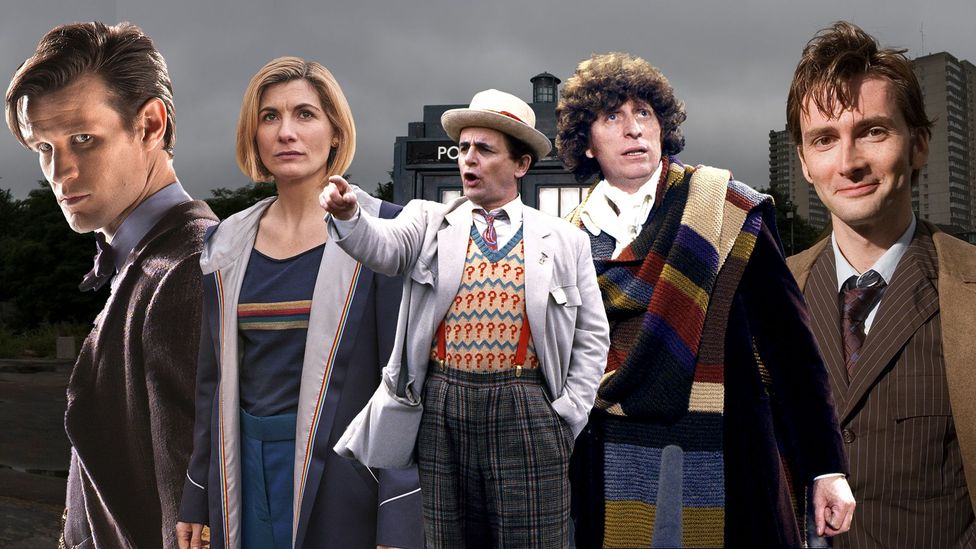Today, Doctor Who celebrates its 60th birthday – a truly astonishing achievement for a TV series. And in that time, no less than 13 actors have played the time-travelling Doctor, with Ncuti Gatwa set to become the 14th when he takes over at Christmas (although he will officially be known as the Fifteenth Doctor, as one actor, David Tennant, has now played two separate incarnations of the Doctor).
More like this:
– A beginner's guide to Doctor Who
– Why Doctor Who is the ultimate British show
– Doctor Who's most stylish Doctors
In honour of this great day, we decided to ask a selection of Doctor Who experts a very tricky question: who is the greatest Doctor of them all? Here were their answers, which make for perfect fuel for continuing the debate in your own home.
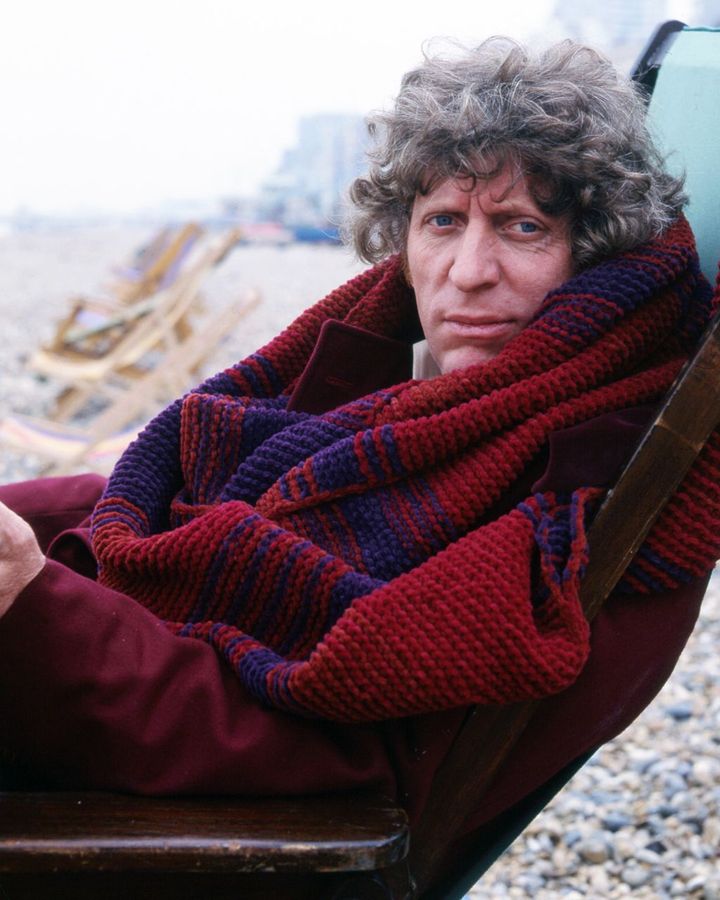
(Credit: BBC)
Tom Baker as the Fourth Doctor (1974-1981)
A Saturday night, April 1975. A man with a shock of tumbling curls and a colossal multi-coloured, striped scarf holds in his hands two wires. Touch them together and the greatest evil ever visited on the universe will never come to be. But the man's expression is of impossible torment. "Simply touch one wire against the other, and that's it, the Daleks cease to exist," breathes the Fourth Doctor. "Do I have that right?"
No-one who saw this electrifying scene in episode 5 of Genesis Of The Daleks has ever forgotten it. It's not just a pivotal moment in this time-travel saga, it is the time-travel story, the ultimate moral question: could you kill the infant Hitler? And it works chiefly because it's delivered by an actor whose outsize charisma and burning moral intensity – and, elsewhere, absurdist levity – were powerful enough to remake entirely everyone's idea of who and what the Doctor is. For decades afterwards, when comedians or cartoonists spoofed Doctor Who it was the fourth incarnation, Tom Baker, that they were doing, with his scarves, hats, Jelly Babies, and robot dog K-9. The longest-running Doctor, with seven years' Tardis-time, Baker made himself the definitive article.
A former novice monk born in Liverpool, Baker was between jobs and working on a building site when he got the call to replace Jon Pertwee. In place of Pertwee's suave Time Lord, he reinvented the Doctor as a kind of intergalactic Toulouse Lautrec, an unpredictable cosmic flâneur with bohemian get-up and a supernova grin. The Fourth Doctor could be warm, silly and occasionally shockingly callous – he tells a team of Antarctic explorers who are about to be absorbed by alien plant monster the Krynoid "You must help yourselves" – but he always landed on the side of right in the end.
Best of all, the children's show that adults loved now had a star who delighted in being something of a big kid himself. At the end of his first story, Robot, the Fourth Doctor treats companion Sarah Jane Smith (herself a GOAT) to his code for living: "There's no point in being grown-up if you can't be childish sometimes." Isn't that the joy of the show in a nutshell? Time, space, the endless battle of good against evil… and Jelly Babies.
Andrew Harrison
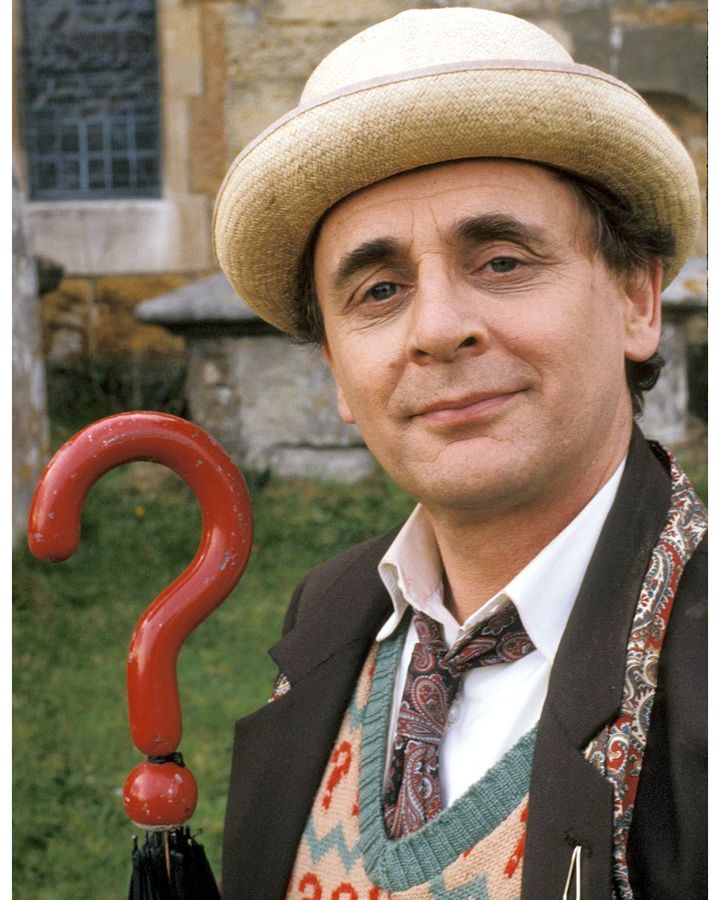
(Credit: BBC)
Sylvester McCoy as the Seventh Doctor (1987-1989)
No incarnation of The Doctor has had as startling a character arc as Sylvester McCoy's Seventh Doctor. His umbrella-toting professor type was initially eccentric to the point of bumbling, giving apparently rambling speeches before his clever solutions became apparent. But over time his character darkened and sharpened, and he ended his run as perhaps the more ruthless Doctor of all.
While the Seventh Doctor's volte-face actually came about because fans strongly disliked his initial wacky incarnation, the effect now, more than 30 years later, is to give us a fascinating take on the character. McCoy's considerable talent for clowning, doing magic tricks and playing the spoons initially gave his performance a lightness and a welcome sense of fun after the comparatively serious Fifth Doctor, and he had an easy chemistry with his slightly baffled holdover companion Mel (Bonnie Langford). But he hit his stride as an actor when the character got more serious, and in his dysfunctional but affectionate relationship with punky teen companion Ace (Sophie Aldred). Poor Ace was put through the mill, particularly as the Doctor got more remote from humanity and started treating her and everyone else like a puppet. Thankfully, her unquenchable optimism just about survived.
For a man who abhorred guns and disdained violence generally, the Seventh Doctor proved a sometimes terrifying adversary to all evil-doers. His great weapon was his voice, with McCoy's natural Scottish burr and musical tones employed mercilessly to talk more than one opponent into suicide, in episodes like Ghost Light and the outstanding Remembrance of the Daleks.
The Seventh Doctor's tenure ended after only 12 stories – after which the entire show was put on a lengthy hiatus – but far from harming the show's longevity he now, in retrospect, seems to have laid the groundwork for its rebirth. That mix of ruthlessness and lightness remains a big part of the Doctor's persona, and the more fleshed-out companions became standard. While it didn't seem so at the time, seven may have been a lucky number for the character after all.
Helen O'Hara
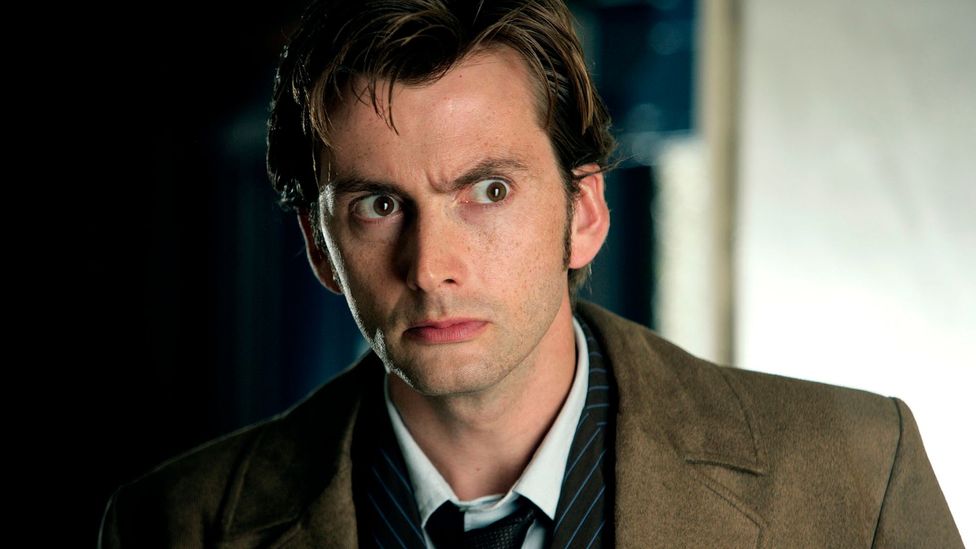
(Credit: BBC)
David Tennant as the Tenth Doctor (2005-2010)
In the early spring of 2005 – the season, fittingly, of renewal – showrunner Russell T Davies made Doctor Who breathe once again when he revived the series after 16 years off air. However it wouldn't be until a year later, after outgoing Doctor Christopher Eccleston regenerated into the relatively unknown David Tennant, that the revival would sing.
Tennant was an odd prospect at first: the self-described "skinny, gawky freak boy" who would become a sex symbol; the native Scot who spoke like Dick Van Dyke in Mary Poppins and wore Converse trainers with a suit. Yet these endearing incongruities only fed into Tennant's charisma, only served to heighten the Tenth Doctor's compelling mystique. He was the unknowable alien who felt more knowable than ever; "He's like fire and ice and rage," to quote one character, the mythical avenging Time Lord who fell in love.
It was precisely the Tenth Doctor's dashing romanticism that set him apart from his predecessors
Until the modern era, the unofficial rule of Doctor Who had been "no hanky-panky in the Tardis". Yet it was precisely the Tenth Doctor's dashing romanticism that set him apart from his predecessors. Just take The Girl in the Fireplace, a tragic love story between the Doctor and Madame de Pompadour, which unfolds like a fairy tale. Or the long, winding arc of the Doctor's will-they-won't-they romance with Billie Piper's companion Rose, which gave the show an emotional punch it never quite had before.
Audiences responded to this handsome, younger, more vulnerable Doctor, whose creative pairing with Russell T Davies led to some of the greatest Doctor Who ever made. Episodes like Blink, Midnight, Human Nature and The Family of Blood; Silence in the Library, Forest of the Dead, and Turn Left. Doctor Who fans may argue – as they like to do – whether classics such as these represent a creative golden age of Doctor Who, but they cannot argue with the numbers.
By series four, in 2008, episodes were pulling in an average of eight million viewers a week in the UK. At the era's peak – Christmas special Voyage of the Damned, starring Kylie Minogue – it achieved more than 13 million viewers. By comparison – with the caveat that British viewing habits have since fragmented and changed – the average consolidated ratings of the 2022 series were 4.84 million.
Is it any wonder that Russell T Davies has returned to helm the show once more? That, in an unprecedented twist, David Tennant's Doctor has come back from the dead to star in a series of specials for the 60th anniversary? That, when faced with the prospect of stagnation, Doctor Who has retreated to its golden era to breathe life into the show once more?
Forget best Doctor. As far the modern era is concerned, this is the Doctor.
Stephen Kelly
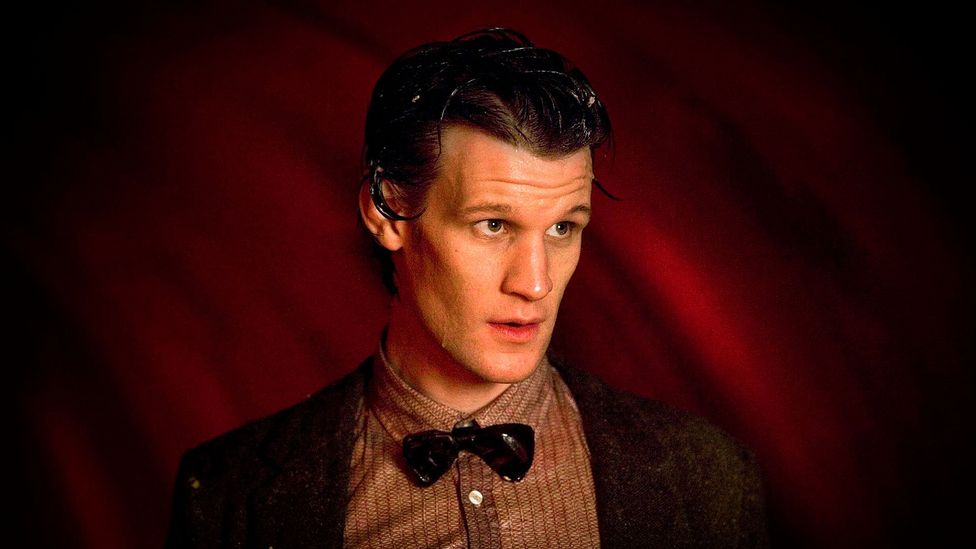
(Credit: BBC)
Matt Smith as the Eleventh Doctor (2010-2013)
Has any Time Lord faced a more daunting debut than Matt Smith? In 2010 David Tennant was a beloved household name, more the Doctor to millions of viewers than any actor since Tom Baker. In the weeks his last episodes aired – and Smith took over – he was the star of the BBC's Christmas idents, for Gallifrey's sake.
Sure, new Doctors have had big shoes to fill in the past. Patrick Troughton had to more or less invent the idea of the regenerated character when he took over from Willian Hartnell in 1966, and Peter Davison had to follow Tom Baker's seven-year, pop culture-dominating run in the 80s. But for my money, Smith still had the biggest hill to climb.
It's easy to forget the level of hostility his casting inspired from certain quarters – he was too young, too unknown, too odd-looking to follow the handsome, heroic Tennant.
Facing all that, and only in his mid-20s, Smith still formed what might be the most considered take on the Doctor in decades. The Eleventh Doctor seemed young, but also impossibly old; clever, but scatty; handsome, but strangely alien; hopeful, but world-weary; cool, but somehow stuffy. In other words, he was every contradiction that forms the Time Lord we all know and love – and he managed to embody it all from his triumphant, never-bettered debut episode The Eleventh Hour.
Over four years (minus a week), three (ish) series and a 50th anniversary special, Smith made the role his own, and took the series to new heights. For most, the Tenth Doctor will always be the Doctor of the revived series – but to find the best, you've got to turn it up to Eleven.
Huw Fullerton
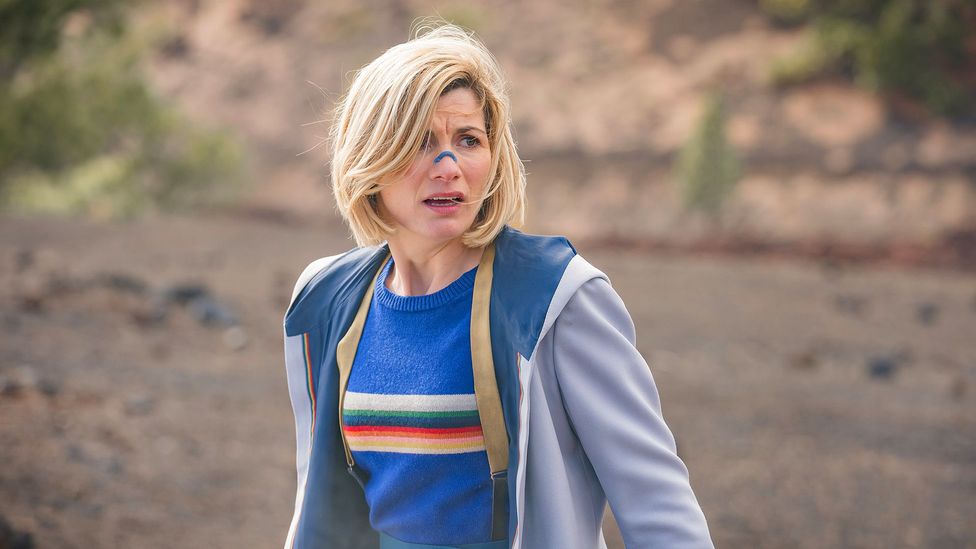
(Credit: BBC)
Jodie Whittaker as the Thirteenth Doctor (2017-22)
Jodie Whittaker's Thirteenth Doctor not only changed the face of Doctor Who forever, being the first female protagonist, but encapsulated everything the character has ever stood for with her infectious joy and deeply empathetic, caring nature.
The triumph of her incarnation was her sense of wonder and passion during every moment. She was open to new friends, experiences and beliefs, and stood up for what was right in the universe. She somehow managed to be entirely hopeful and kind, despite the pain she experienced throughout her tenure. She was inspiring, loving and comforting to watch. She never wavered from looking after those around her, and in turn, looking after us.
Her love for science was a highlight, from building her own sonic screwdriver to her excitement at meeting Ada Lovelace and Nikola Tesla. It was through her that we could learn more about ourselves and our world, with many a teachable moment and heartwarming speech.
Her ability to stand up for the people who needed it most during her run solidified her as one of the best Doctors to board the Tardis
There's something special about the way the Thirteenth Doctor managed to feel alien yet like our best friend at the same time. She could name-drop Elvis Presley or Amelia Earhart, eat grass as a location indicator or forget her current "gender", and still feel like someone who always made sense, someone that you could lean on.
She wasn't afraid to call it out when something was wrong. She faced off with King James I in 2018's The Witchfinders, reprimanding him for his treatment of women. There was her total disgust at Gallifreyan explorer Tecteun and their imperialistic attitude towards the rest of the universe in 2021's Flux.
Her ability to stand up for the people who needed it most during her run solidified her as one of the best Doctors to board the Tardis – proving that the Doctor's gender could change with no detriment to the character. And that sometimes, significant changes to an age-old franchise like Doctor Who can be a true blessing.
Beth Axford
If you liked this story, sign up for The Essential List newsletter – a handpicked selection of features, videos and can't-miss news delivered to your inbox every Friday.
